After years of being a widower, Matthew is caught off guard when the first person he sees as he’s having a stroke is Taylor, his wife. Except that doesn’t make sense: Taylor was laid to rest 20 years ago. Is Matthew hallucinating, or is something else going on?
It happened so fast. I was unpacking groceries one moment, and the next, my vision blurred, my arm went numb, and the floor came rushing toward me.
I barely remember dialing for help. When I opened my eyes in the ambulance, she was there.
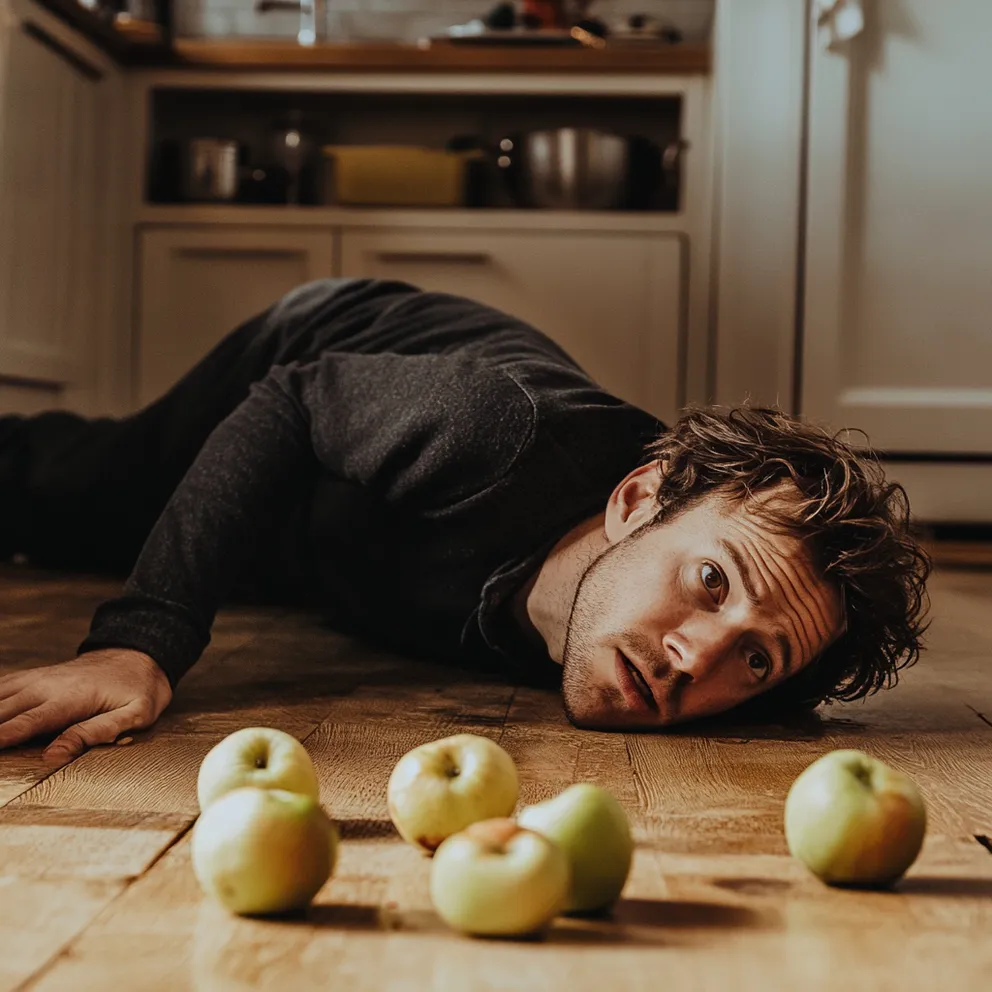
A man on the floor | Source: Midjourney
Her.
At first, I thought it was a hallucination, a side effect of my brain misfiring under the strain of a stroke. But she was real, seated beside me, her hand on mine.
Her face was older than I remembered, but her striking eyes and warm smile told me everything I needed to know. Her face wasn’t one that I would forget. Ever.
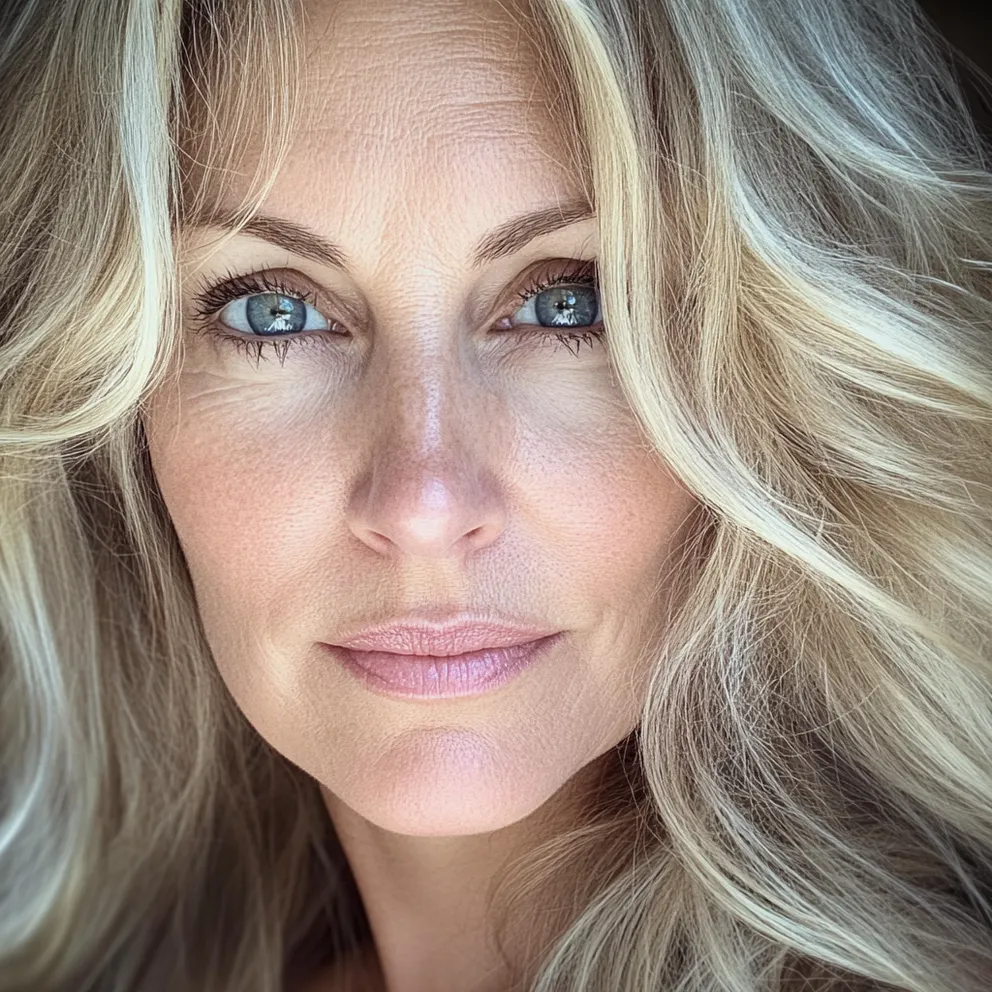
A close up of a woman | Source: Midjourney
It was Taylor, my wife.
The wife I buried 20 years ago.
She stayed silent as I whispered her name over and over, like a mantra I had learned and couldn’t get out of my head.
“Taylor,” my voice cracked with disbelief. “It’s you. It’s really you?”
Her grip tightened, but her expression remained unreadable.
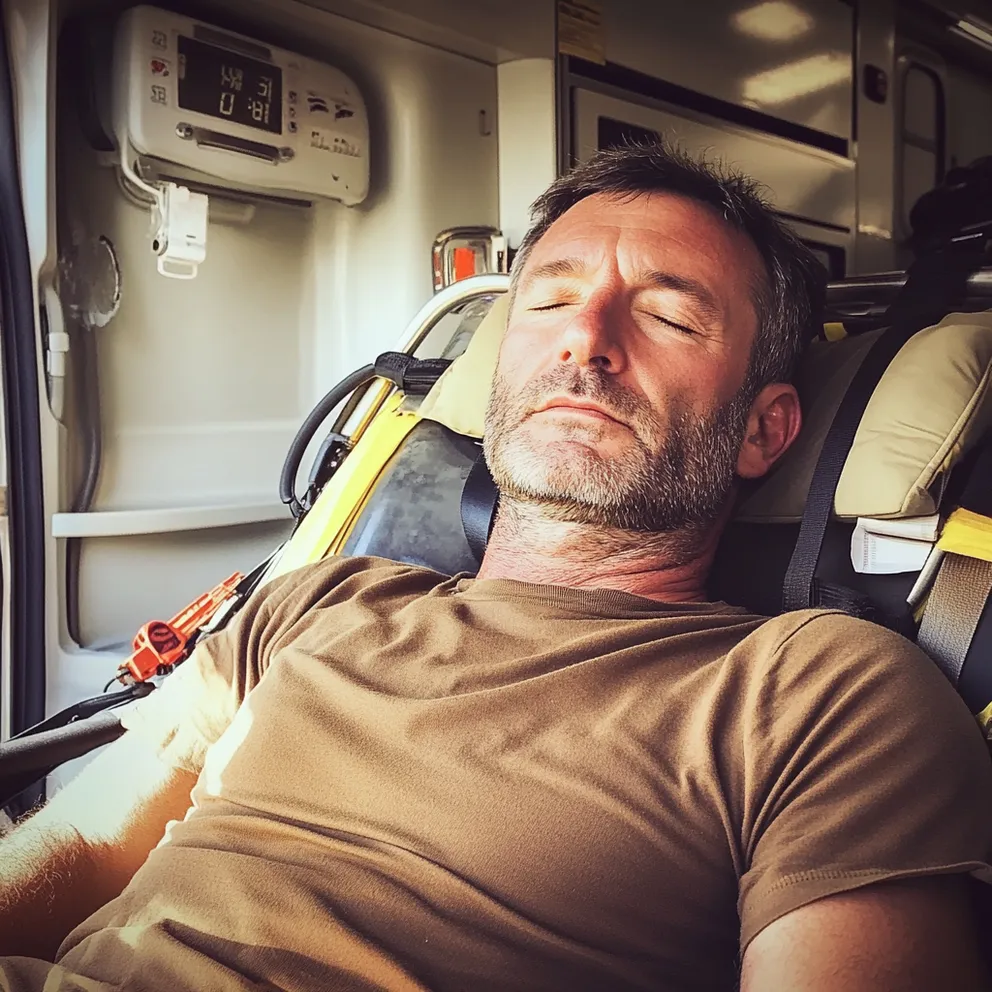
A man in an ambulance | Source: Midjourney
When we reached the hospital, she stayed by my side. I watched her speak calmly to the paramedics and later to the doctors. She moved with quiet confidence, like someone who had done this before.
It wasn’t until hours later when the chaos settled and I lay in a sterile hospital room with only her beside me, that she finally spoke.
“Are you really my husband?” she asked, her voice soft but tinged with uncertainty.
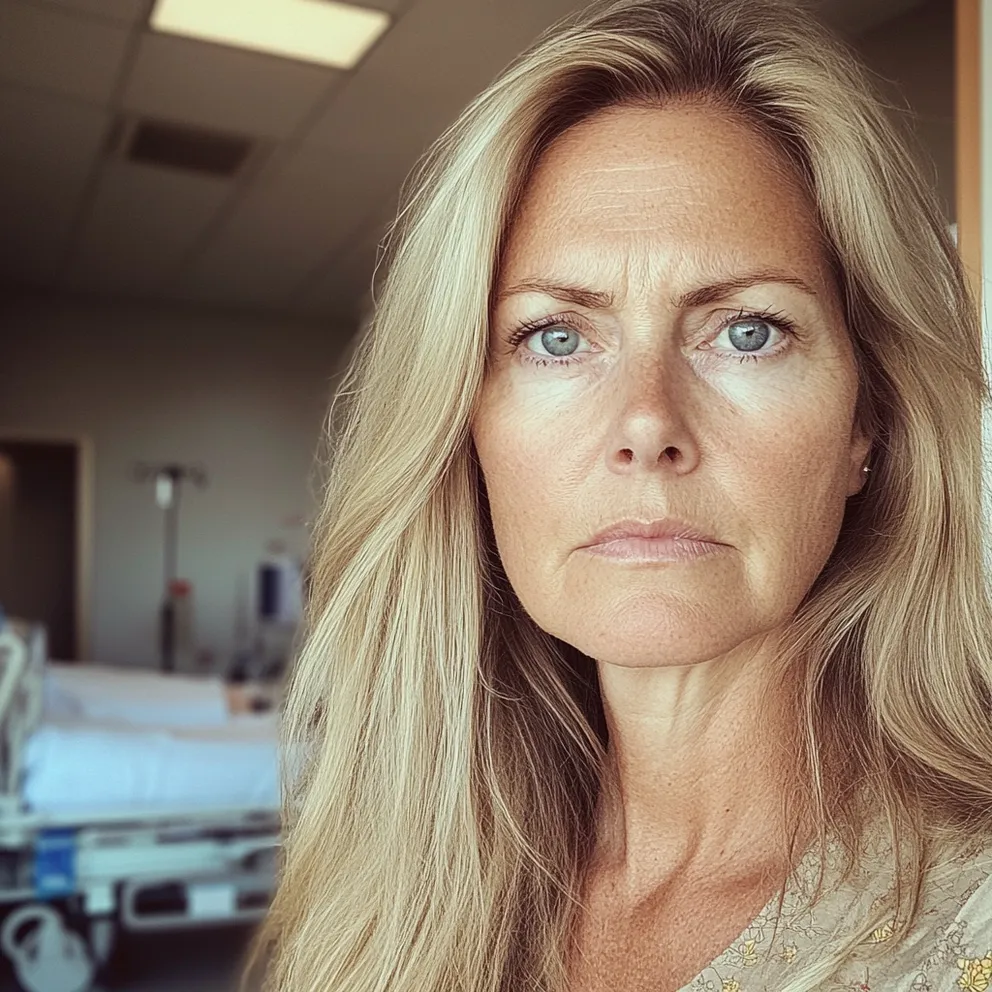
A woman standing in a hospital room | Source: Midjourney
The question knocked the air from my lungs. I stared at her, my mind a whirlpool of confusion and hope.
“Taylor… is it really you? Are you truly alive? Of course, I’m your husband. I’m Matthew, honey. Your Matthew.”
She hesitated, her brow furrowing.
“I’m alive,” she said gingerly. “But… I’m not sure if I’m your Taylor. I have flashes. Memories, fragments. I don’t know… but for a moment, it felt like you were my husband.”
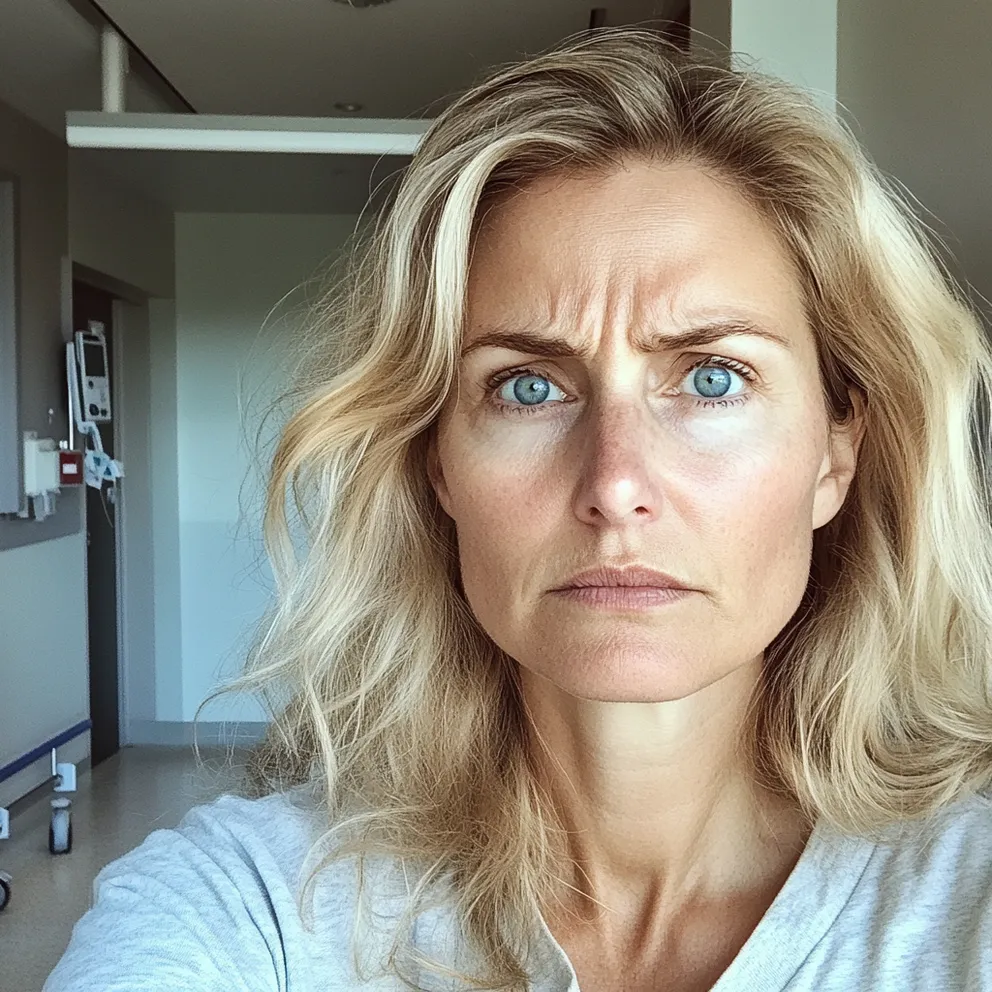
A woman looking upset | Source: Midjourney
Her words hit me like a gut punch. Flashes? Memories? What had happened to her?
I told her everything.
I told her everything I knew about the accident and everything that I didn’t. I told her about the empty coffin that I had to bury because the officials said that Taylor’s body had most likely washed out to sea. Her car accident was on a road that had a steep drop down a cliff straight into the water.

A steep cliff | Source: Midjourney
“I don’t know what else to tell you, sir,” the official said. “But there’s no body here. There’s blood, and there’s car debris, but the body? She may have flown over the cliff on impact and into the water.”
“What now?” I had asked.
“We’ll keep looking. But I suggest closure.”
I told her about the years I spent mourning her.
And as I spoke, tears filled her eyes, and she began to sob uncontrollably. Through gasps, she began to explain.
“I was in an accident. I do remember that. I don’t remember much other than that, but I know there was a man. He said he found me in the car. I couldn’t remember who I was, but I knew my name was Taylor because I was wearing a jacket with my name on it. Do you remember that? It was black.”
She paused.
“Alister told me that I was his wife, and that I was on my way to him when I had the accident. He said my family was gone. He was all I had left.”
Her sobs turned into anguished cries as she recounted the life she had been forced to live.
“He isolated me, but I also didn’t question it at first. He showed me love and care, even if it felt… odd and foreign. There was still warmth in his face and touch,” she said.
“We lived in a cabin deep in the woods. He told me stories, all these lies about our lives together. He showed me photos of us, fake pictures. I believed him because… I had nothing else. No memories, no identity. He was all I knew. And if I’m being honest, I loved being away from people.”
My heart ached as she described her 20 years of survival. She cared for the man, cooked and cleaned, and tended to the animals they raised.
“But something had always felt off,” she said.
“I had instincts I couldn’t explain,” she continued.
“When people came to me for help, sick neighbors, injured animals, I somehow knew what to do. He said it was a gift from my grandmother, that I’d always been this way. But I never felt like myself. I didn’t even know what ‘myself’ meant. But recently, I started having flashbacks of my life before the accident. I could see you in them, my sister, even a man who I think was my boss.”
She paused, tears spilling down her cheeks.
“When I came into town a few days ago, everything changed. I somehow found myself at your home. I was in the backyard, trying to will myself to remember something, anything. And then I saw you through the window. You collapsed, and without thinking, I ran to you. I knew what was happening. I knew you were having a stroke. And then you kept calling Taylor. Over and over.”
Her voice faltered, and she looked at me with an intensity that made my chest tighten.
“And then something clicked. Memories. Flashes. Our wedding day. The way you smiled at me. The sound of your laugh. It all came rushing back. I didn’t understand it, but I couldn’t ignore it.”
I reached for her hand, overwhelmed.
“Taylor, this man. Who is he? Where is he now?”
Her face crumpled.
“I don’t know. He said he was leaving town, but I don’t know if I believe him. I left as soon as I saw you. I couldn’t go back.”
The hospital room grew silent except for the steady beep of the heart monitor.
Later that evening, my mother brought a photo album to the hospital. She laid it in Taylor’s lap and flipped through page after page of our life together—our wedding, birthdays, vacations, and more.
Each photo seemed to ignite a spark of recognition in her.
“I remember this,” she whispered, her voice trembling. “I remember that dress. I remember the way it felt on my skin. I remember this day, Matthew.”
She broke down, clutching the album to her chest.
We decided to find the man. With the help of the police, we tracked him down to a motel on the outskirts of town. When we confronted him, he didn’t resist.
“I lost my girlfriend in an accident right there about three years before Taylor’s accident,” he said, his voice shaking. “When I found Taylor in that exact spot, she was broken, lost, and didn’t even know her name. I thought… I thought I could save her. I could bring her back, even if she wasn’t truly mine. I just wanted to give her a life.”
His confession was laced with tears, his grief palpable. I wanted to hate him. I wanted to scream at him for stealing twenty years of my wife’s life. Of our life. But as I looked at the broken man before me, I couldn’t summon the rage I expected.
Taylor, too, was torn. She felt sympathy for the man who had saved her, even if his actions were wrong. But as her memories continued to return, so did the love we had shared.
In the end, she decided to leave.
She moved to the city, determined to rebuild her life and reclaim the lost years. She enrolled in medical school, driven by the knowledge and instincts that had stayed with her through everything.
“I’m going to be a nurse, Matt,” she told me. “I want to help. This is how I’ll do it.”
For a while, we kept our distance. She needed time to heal, to rediscover herself. But little by little, we began to reconnect.
At first, it was tentative. A coffee here, a lunch there, a late-night walk to get ice cream. We shared stories, laughed at old memories that she could piece together, and slowly rebuilt the bond we thought we had lost.
Taylor wasn’t the same woman I had married all those years ago. She was much stronger now, shaped by her years of survival and resilience. But in many ways, she was still the same.
The same warmth, the same spark, the same fierce love.
It wasn’t easy. There were scars, both seen and unseen, that would never fully fade. But together, we forged a new beginning.
Love, I learned, isn’t just about the past. It’s about the choice to keep moving forward, to build something new even when the pieces don’t quite fit the way they used to.
And in Taylor, I found the proof of that. Against all odds, love had found its way back to us.